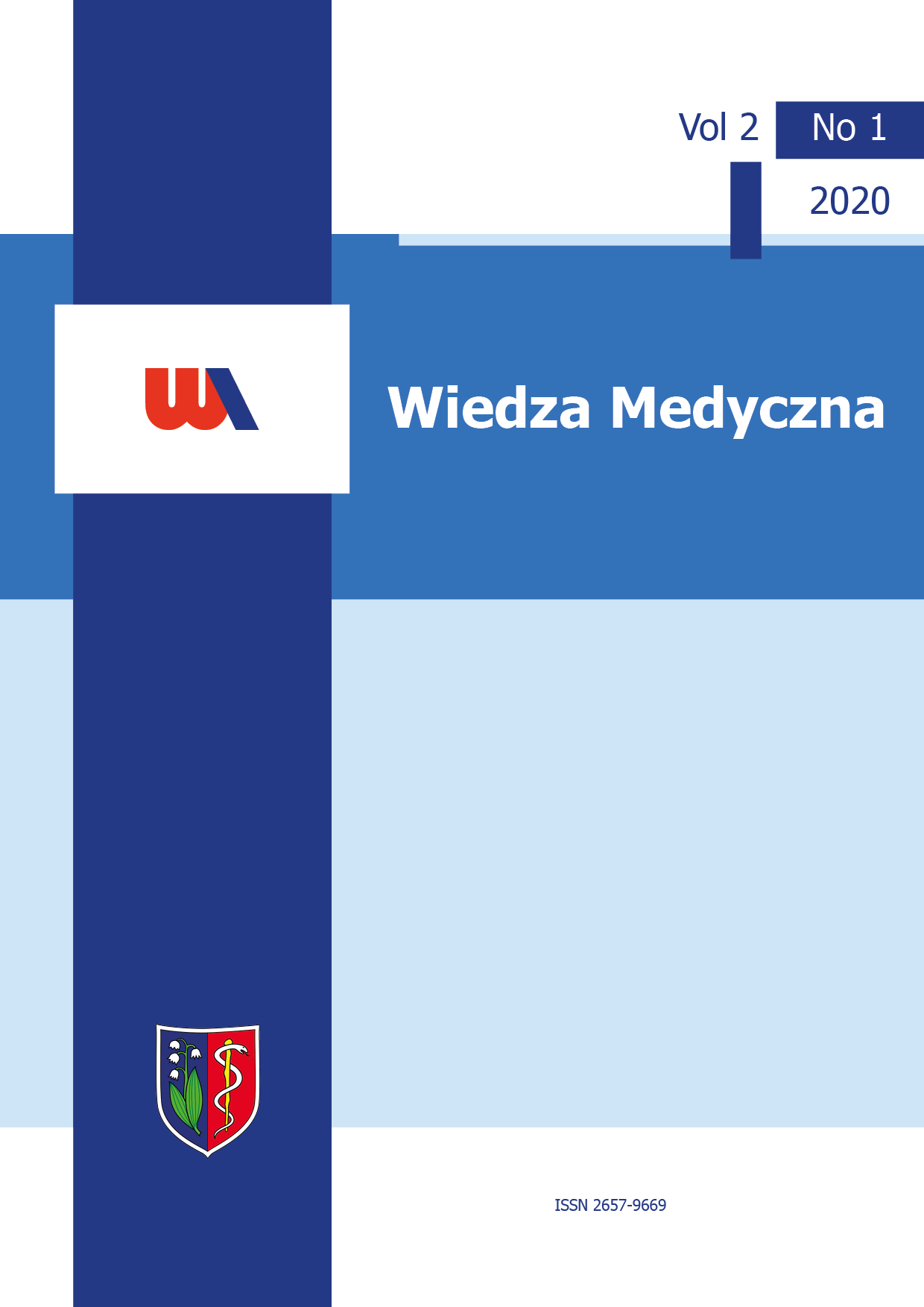Abstract
Introduction: The specialty training system in Poland is subject to constant changes on the formal and legal as well as qualitative and quantitative levels. These changes should be analysed on an ongoing basis to assess the directions of development of education for medical specialists.
Objective of the paper: The study aimed to determine the quantitative changes taking place in the system of specialty training of physicians in general and in ten most numerous fields of medicine in the years 2011-2018.
Material and methods: Data from the register of physicians undergoing specialty training conducted by the Centre of Postgraduate Medical Education from 2011 to 2018 constituted the material for analysis. The analysis of the material was of quantitative character. The data analysis was performed using the Statistica 12 Software (TIBCO Software Inc., Palo Alto, CA, the USA).
Results: The analysis of data from the register of physicians undergoing specialty training indicates that the number of physicians who trained to be specialists and the percentage of women in the group increased in the years 2011-2018. In the period in question, the percentage of doctors in training within a residency, the number of specialty training providers the number of training places and the use of training places enabling them to pursue specialisation rose as well. The situation differed between 10 specialties analysed.
Conclusions: The system of post-graduate education of physicians in Poland in the years 2011-2018 constantly developed and increasingly took advantage of most of its opportunities.
References
(1) Code of Medical Ethics, Article 56.
(2) Act of 5 December 1996 on the Physician's Profession (Journal of Laws of 2019, item 537).
(3) Regulation of the Minister of Health of 29 march 2019 on the specialisation of doctors and dentists (Journal of Laws of 2019, item 602).
(4) The website of the Ministry of Health. https://www.gov.pl/web/zdrowie/liczba-przyznanych-miejsc-rezydenckich-dla-lekarzy-i-lekarzy-dentystow-ktorzy-rozpoczna-szkolenie-specjalizacyjne-na-podstawie-postepowania-kwalifikacyjnego-przeprowadzanego-w-terminie-1-31-pazdziernika-2019-r [access 1 November 2019].
(5) Report on the implementation of the state budget for the period from 1 January to 31 December 2017, discussion. Council of Ministers. Warszawa 2018.
(6) Zgliczyński WS, et al. Physicians and Dentists – Staffing and Training System in Poland. Postępy Nauk Medycznych 2016; 29 (5): 270-278.
(7) Baliński P, Krajewski R. Lekarze i lekarze dentyści w Polsce – charakterystyka demograficzna (Doctors and dentists in Poland – demographic characteristics). Status on 31 December 2017. Naczelna Izba Lekarska. Warszawa 2018.
(8) OECD (2017). Health at a Glance 2017: OECD Indicators. OECD Publishing. Paris. http://dx.doi.org/10.1787/health_glance-2017-en.
(9) Zgliczyński WS, Imiela J, Zgliczyński W. Lekarze specjalizujący się w zakresie chorób wewnętrznych – motywy wyboru specjalizacji, problemy związane z przebiegiem kształcenia oraz plany zawodowe po uzyskaniu specjalizacji (Doctors specialising in internal medicine – motivations for choosing a specialisation, problems related to the course of training and professional plans after obtaining the specialisation). Postępy Nauk Medycznych 2013; 11: 784-788.
(10) Weggemans MM, Van Dijk B, Van Dooijeweert B, Veenendaal AG. Ten Cate O. The postgraduate medical education pathway: an international comparison. GMS Journal for Medical Education 2017; 34(5), DOI: 10.3205/zma001140.

This work is licensed under a Creative Commons Attribution 4.0 International License.


